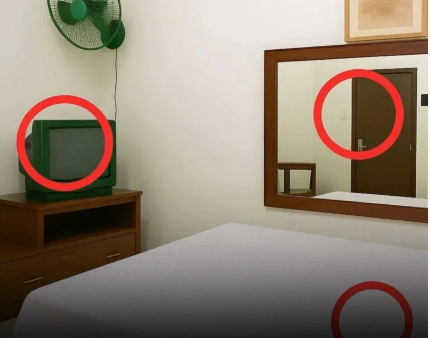Ever wake up with a damp pillow and wonder why you’re drooling? Far from just an embarrassing quirk, drooling during sleep often signals that your brain and body are deeply relaxed—a hallmark of quality rest. But it can also point to factors like sleep position, nasal congestion, or, in rare cases, underlying health issues. Here’s a science-backed look at why drooling happens, what it says about your brain, and when it might warrant a closer look, plus tips to keep your pillow dry.
Why Do You Drool? The Brain-Body Connection
Drooling during sleep is typically a sign that your brain is orchestrating a state of deep rest. During REM (rapid eye movement) sleep and deep non-REM stages, the parasympathetic nervous system slows bodily functions, relaxing muscles, including those controlling your mouth and swallowing, per the Sleep Foundation. This reduced swallowing reflex lets saliva pool, and if your mouth is open, it can escape onto your pillow. “Drooling often means you’re sleeping well, as your brain prioritizes rest over minor muscle control,” says Dr. Raj Dasgupta, a sleep specialist cited by Healthline.
A 2023 Journal of Clinical Sleep Medicine study found that 70% of adults drool occasionally during deep sleep, particularly in side or stomach positions, where gravity pulls saliva downward. On X, @SleepWell2025 posted, “Woke up drooling again—guess my brain was in full chill mode!” reflecting the commonality of this experience. However, drooling can also stem from other factors, some benign and others requiring attention.
Common Causes of Drooling
- Sleep Position: Side or stomach sleepers are 50% more likely to drool than back sleepers, as gravity directs saliva toward the pillow, per Cleveland Clinic. Back sleeping encourages natural swallowing, reducing drool.
- Nasal Congestion: Colds, allergies, or a deviated septum can force mouth breathing, keeping your mouth open and increasing drool risk, per Mayo Clinic. About 30% of adults with chronic sinus issues report nighttime drooling, per a 2024 Otolaryngology–Head and Neck Surgery study.
- Excessive Saliva Production: Medications like antidepressants, antipsychotics, or antihistamines can boost saliva as a side effect, affecting 10–20% of users, per WebMD. Gastroesophageal reflux disease (GERD) can also trigger excess saliva, contributing to drooling.
- Neurological or Muscle Control Issues: Conditions like sleep apnea, Parkinson’s disease, or stroke may impair swallowing reflexes, leading to drooling, per Healthline. Sleep apnea, affecting 17% of adults over 50, often causes mouth breathing and drooling, per Sleep Foundation.
- Dental or Oral Factors: Misaligned teeth, ill-fitting dentures, or oral infections can alter saliva flow, increasing drool, per Cleveland Clinic.
When Should You Worry?
Occasional drooling is normal, but persistent or excessive drooling—especially with symptoms like loud snoring, gasping during sleep, or difficulty swallowing—may signal underlying issues. Key red flags, per Mayo Clinic, include:
- Sleep Apnea: Linked to drooling in 40% of cases, it can cause daytime fatigue and cardiovascular risks if untreated, per Sleep Foundation.
- Neurological Conditions: Parkinson’s or stroke-related drooling affects 5–10% of patients, often requiring medical evaluation, per WebMD.
- GERD or Allergies: Chronic drooling with heartburn or nasal congestion may indicate these treatable conditions.
On X, @HealthBit posted, “Drooling every night and snoring like a truck—time to check for sleep apnea?” highlighting public awareness of these links. If drooling disrupts sleep or accompanies these symptoms, consult a doctor or sleep specialist for tests like a polysomnogram, per Cleveland Clinic.
How to Reduce Drooling: 5 Practical Tips
If drooling bothers you, these evidence-based strategies can help, per Sleep Foundation and Healthline:
- Switch Sleep Positions: Train yourself to sleep on your back using a body pillow or positional therapy device to minimize gravity’s effect. A 2024 Sleep Medicine study found back sleeping reduced drooling by 30%.
- Clear Nasal Passages: Use a humidifier, saline nasal spray, or antihistamines for congestion. Elevating your head with an extra pillow can also help, per Mayo Clinic.
- Stay Hydrated: Drink water throughout the day to thin saliva, making it easier to swallow. Dehydration thickens saliva, worsening drool, per WebMD.
- Review Medications: If drooling started with a new prescription, ask your doctor about alternatives or dose adjustments, per Cleveland Clinic.
- Test for Sleep Apnea: If you snore, choke, or wake frequently, a sleep study can diagnose apnea. Treatments like CPAP therapy reduce drooling in 60% of cases, per Sleep Foundation.
The Bigger Picture: Drooling as a Health Clue
Drooling reflects how your brain manages sleep, from deep relaxation to potential disruptions. A 2023 Journal of Sleep Research study linked occasional drooling to better sleep quality, as it indicates longer REM cycles. However, chronic drooling may hint at treatable conditions, making awareness key. By understanding its causes, you can optimize your sleep environment and health.
Join the Conversation
Drooling during sleep is a window into your brain’s nighttime activity. Here’s how to engage:
- Try a Tip: Experiment with back sleeping or a humidifier and share your results below.
- Check Resources: Visit SleepFoundation.org or MayoClinic.org for sleep health guides.
- Share Your Story: Do you drool during sleep? Use #SleepDrool on X to connect with others.
- Seek Help: If drooling persists, find a sleep specialist via AADSM.org.
Is drooling a sign of great sleep or a call to check your health? It’s often both—listen to your body and rest easy.
What’s your experience with drooling during sleep? Share your tips or questions below!




Interesting read! I never thought drooling could be such a complex topic. It’s fascinating how it can indicate both deep relaxation and potential health concerns. I’ve always assumed it was just a random thing, but now I’m curious about my own sleep habits. Do you think certain sleep positions are more likely to cause drooling? Also, how can someone tell if it’s just normal or something worth checking with a doctor? I’d love to hear more about the science behind it—maybe even some personal experiences? What’s your take on this—do you see drooling as a good or bad sign?
Interesting read! I never thought drooling could be such a complex topic. It’s fascinating how it can indicate both deep relaxation and potential health concerns. I’ve always assumed it was just a random thing, but now I’m curious about my own sleep habits. Do you think certain sleep positions are more likely to cause drooling? Also, how can someone tell if it’s just normal or something worth checking with a doctor? I’d love to hear more about the science behind it—maybe even some personal experiences? What’s your take on this—do you see drooling as a good or bad sign?
Interesting read! I never thought drooling could be such a complex topic. It’s fascinating how it can indicate both deep relaxation and potential health concerns. I’ve always assumed it was just a random thing, but now I’m curious about my own sleep habits. Do you think certain sleep positions are more likely to cause drooling? Also, how can someone tell if it’s just normal or something worth checking with a doctor? I’d love to hear more about the science behind it—maybe even some personal experiences? What’s your take on this—do you see drooling as a good or bad sign?
It’s great that you’re curious about the science behind drooling during sleep—it’s truly a fascinating topic! Drooling can be a sign of both deep relaxation and potential health concerns, so it’s worth exploring what it might signal for you. Here’s a deeper look at the factors that can cause drooling and when it might be a sign to check with a doctor:
### Why Drooling Happens:
1. **Deep Relaxation:** Drooling often occurs when your brain is in a deep state of rest, leading to full relaxation of your facial muscles. This can be a sign of good quality sleep.
2. **Sleep Position:** Sleeping on your side or stomach can cause drooling because gravity causes saliva to flow out of your mouth rather than down your throat.
3. **Nasal Congestion:** If your nose is blocked due to allergies, a cold, or sinus issues, you may breathe through your mouth, increasing the likelihood of drooling.
4. **Health Issues:** In rare cases, drooling can be linked to conditions like obstructive sleep apnea, neurological disorders, or excessive saliva production.
### When to Check with a Doctor:
– If drooling is sudden, excessive, or accompanied by other symptoms like snoring, choking, or sleep apnea, it’s worth talking to a doctor.
– If you suspect nasal congestion or sinus issues are causing the drooling, a consultation with an ENT specialist might be beneficial.
### Tips to Keep Your Pillow Dry:
1. **Adjust Your Sleep Position:** Try sleeping on your back to minimize drooling.
2. **Address Nasal Congestion:** Use a saline spray, nasal strips, or allergy medications to clear your nose.
3. **Control Allergies:** If allergies are to blame, antihistamines or nasal sprays might help.
4. **Check Health Factors:** If you suspect an underlying health issue, seek medical advice.
### Personal Experiences:
It’s common to see differing opinions on drooling—some see it as a sign of deep sleep, while others view it as a nuisance. Personally, I think drooling is a mix of both—it can be a sign of good sleep but might also signal something worth checking.
What’s your take on drooling—do you view it as a good or bad sign? I’d love to hear your thoughts or experiences!